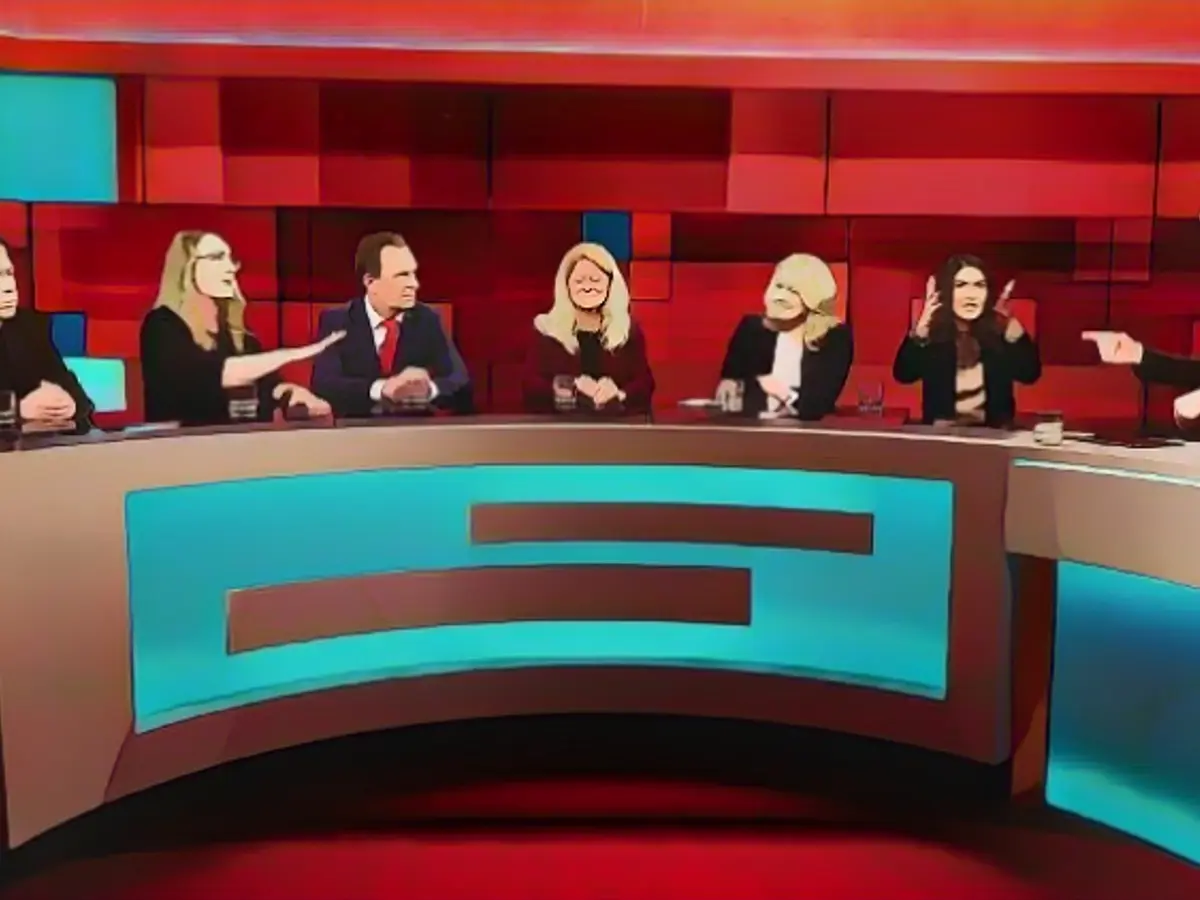"The most severe judgment that could be passed"
The Federal Constitutional Court overturns the federal government's supplementary budget and suddenly there is a gap of 60 billion euros in the budget. How to deal with it? Ideas within the federal government differ widely, as becomes clear on "Hart aber fair".
The budget chaos is perfect. Last Wednesday, the Federal Constitutional Court declared the supplementary budget for 2021 null and void. In it, the federal government had reallocated a 60 billion euro shadow budget, which was actually intended to be used for coronavirus aid, to the Climate and Transformation Fund (KTF). The money was to be used to support the economy, which has been shaken by coronavirus and the ecological restructuring in Germany.
"The ruling is very far-reaching," said SPD General Secretary Kevin Kühnert on ARD's "Hart aber fair", discussing the consequences for the federal budget. "We made a mistake there," Kühnert admits. A legal misjudgement had been made. Green parliamentary group leader Katharina Dröge also says: "Legally, it's clear that we made the wrong assessment and we're all annoyed that it went the way it did." The companies had gone through two serious crises. The government had wanted to support them and at the same time ensure that the economy could position itself for the future. That must also be the aim. "Otherwise, many people in this country will worry about their jobs. We want to give them the certainty that things will continue in this country."
It is "the most stringent judgment that could have been made", says economist Jens Südekum, who is a member of Federal Minister of Economics Habeck's advisory staff. He admits that he was surprised by this. The ruling "will not make financial policy any easier in the future, especially in times of crisis", explains Südekum.
According to Serap Güler from the CDU, the ruling shows that politicians will have to be disciplined with the money raised through taxes in the future. "We need to talk about priorities," demands Linda Teuteberg from the FDP. The former Secretary General of the Liberals is certain that the Karlsruhe ruling will strengthen the debt brake.
What the parties want
However, a dispute is once again brewing in the traffic light coalition. The debt brake was adopted in 2009 by the then grand coalition, with the FDP and Greens disagreeing. This attitude has not changed among the Greens. Katharina Dröge says that it is now important to continue with the economic projects that have been agreed. This is important for Germany as a business location. However, Dröge also sees potential for savings: "We are campaigning for the reduction of environmentally harmful subsidies, which amounts to 60 billion euros in the federal budget." At the same time, Dröge can imagine another special fund, i.e. another shadow budget, to support the economy in its ecological restructuring. She sees no potential for savings in social projects such as the citizen's income or basic child protection. "In my opinion, a country as rich as ours should not be able to afford child poverty."
CDU politician Serap Güler takes a completely different view. She is against the increase in citizens' income on January 1 and against the basic child protection scheme as it is due to start in January. If both were to be suspended, seven billion euros could be saved. "We have the education and participation package, which is also intended to help combat child poverty. This package is not fully utilized every year. (.....) At the moment, this basic protection for children means nothing more than more bureaucracy." However, Güler can also imagine a fund to promote the economy.
For Linda Teuteberg, it's all about saving money. "We have to look at all aspects. Nothing is excluded," she said on "Hart aber fair". Like Katharina Dröge, she is in favor of savings, but does not want to exclude the social budget. For her, this includes the citizen's income: "We must question the fact that the citizen's income increases more than the income of working people." At the same time, Teuteberg is calling for more work incentives for recipients of the citizen's income.
Kevin Kühnert wants to make as few savings as possible in the social sector and points out: "Of course, you can somehow scrape together 60 billion euros if you go over everything with a really thick red pencil. The price for this is (.....) that this society flies apart." He and his SPD colleagues would not raise their hands for this. Together with his party leader Saskia Esken, he is campaigning for a reform of the debt brake.
Jens Südekum also proposes this and can even imagine suspending it again. He proposes that the debt brake should only apply to consumptive government spending, i.e. spending that currently has to be made - such as the citizens' allowance or pensions. On the other hand, investment expenditure that is directed towards the future should be financed through loans.
In the meantime, the Ministry of Finance has reacted to the court ruling from Karlsruhe. Half an hour after the broadcast, it was announced that it had imposed a temporary budget freeze.
The ruling from the Federal Constitutional Court has put SPD General Secretary Kevin Kühnert in the spotlight on "Hart aber fair," as he discussed the implications of the court overturning the federal government's supplementary budget and the 60 billion euro gap it created. He admitted to a legal misjudgment in the budget policy.
In response to the court ruling, economist Jens Südekum, a member of Federal Minister of Economics Habeck's advisory staff, expressed that the judicial decision will not make financial policy easier during times of crisis and will likely necessitate more discipline in managing taxpayer funds. Kevin Kühnert, Green parliamentary group leader Katharina Dröge, CDU politician Serap Güler, and FDP member Linda Teuteberg all voiced their opinions on the situation and the potential impact of the ruling on budget policy and economic projects.
Source: www.ntv.de








